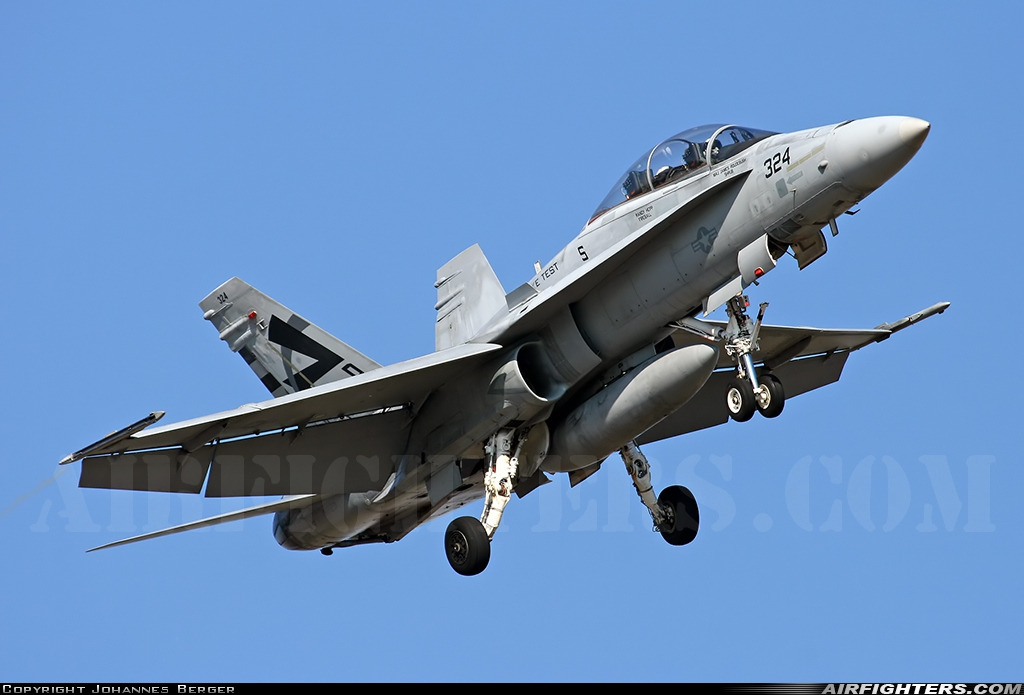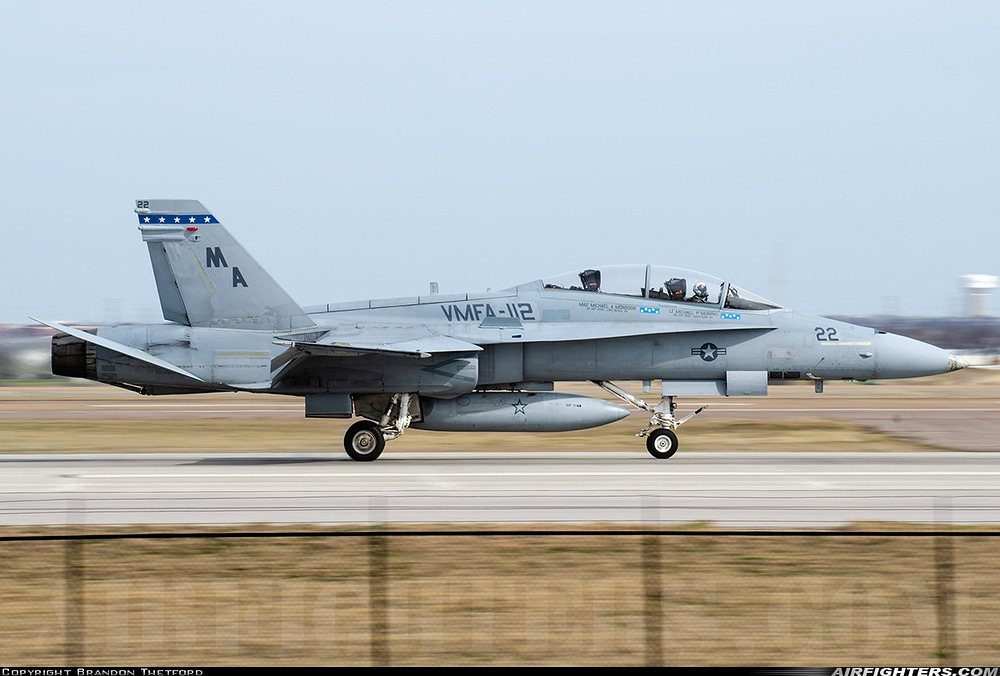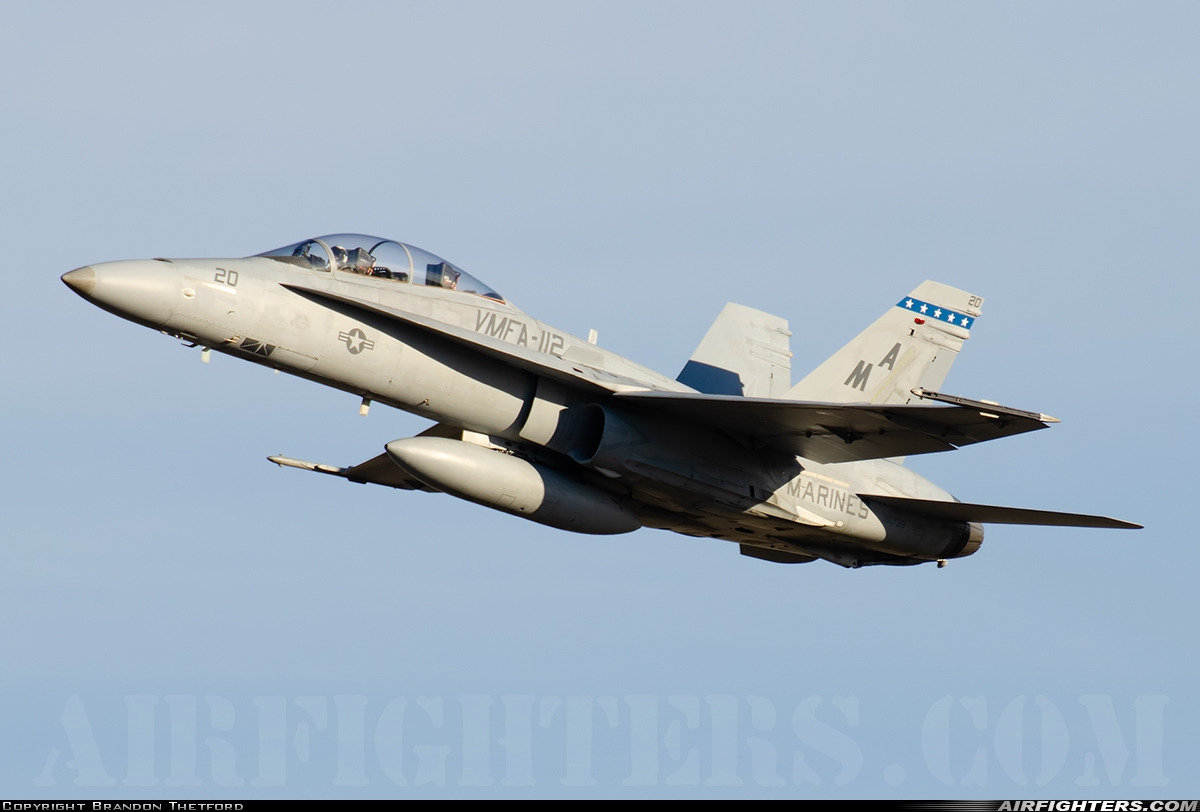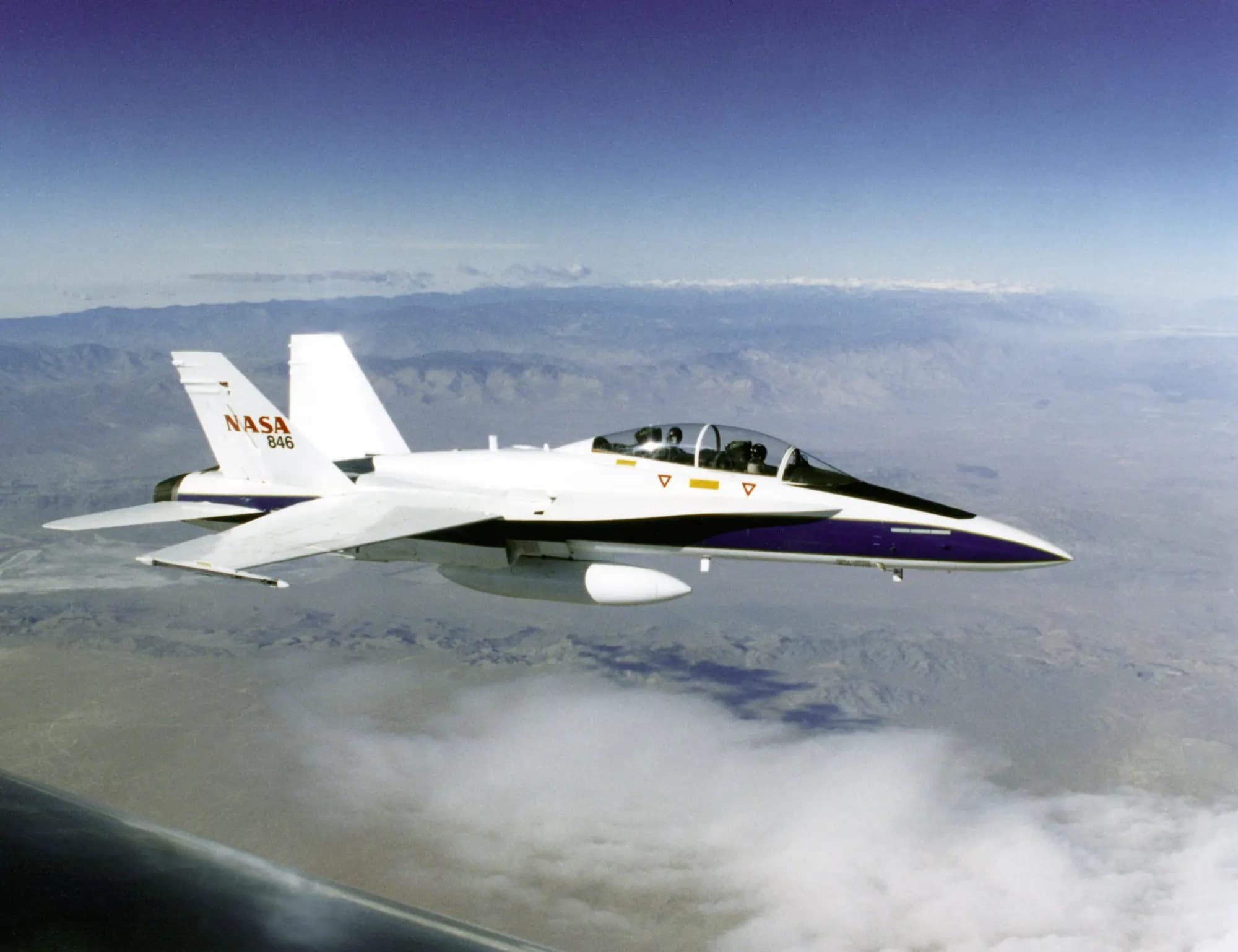The McDonnell Douglas F/A-18B is the twin-seat variant of the F/A-18A designed primarily as a trainer aircraft for the US Navy however it would also see conventional service as a multirole fighter.
History
In August 1971, the US Navy were pursuing a lower-cost alternative to the Grumman F-14. Many designs were proposed such as Grumman proposing a stripped down F-14 named the F-14X, McDonnell Douglas would originally propose a naval variant of the F-15. These were not chosen as both were projected to be nearly as expensive as the F-14 which was in service already. Then Secretary of Defence, James R Schlesinger, told the Navy to evaluate competitor designs proposed to the US Air Force, these were the General Dynamics YF-16 and Northrop YF-17. Ultimately the YF-16 would be chosen by the Air Force, and the YF-17 chosen by the Navy.
As development began, the Navy asked McDonnell Douglas to partner with Northrop in order to take the YF-17 design and develop a new aircraft from it to fit the Navy’s requirements. McDonnell Douglas would become the primary contractor with Northrop becoming a secondary partner. Whilst both would develop the YF-17 into the F/A-18 we know today, Northrop would also develop the F-18L which was intended to be a land-based version to be exported to other nations.
Originally 3 variants of the Navy’s Hornet were planned, the single-seat F-18A and A-18A, dedicated fighter and attacker aircraft respectively. And then the TF-18A, a twin-seat version of the F-18A meant for training. After further development the 3 planned variants would be reduced to 2, the F-18A and A-18A were merged into the F/A-18A, and the TF-18A would be re-designated into the F/A-18B.
The production F/A-18B would differ slightly from the F/A-18A. Most notably it was a twin-seat design meaning that it would fit 2 pilots. It would also be slightly heavier than it’s single-seat counterpart and carrier less fuel internally but it would be capable of carrying the same armament and equipment as the F/A-18A letting it be fully combat capable.
Although being retired by the US Navy in combat roles, the F/A-18B flew as part of the Blue Angels display team until the change over to F/A-18E/F Super Hornets in 2020. NASA also still flies the F/A-18B, designated as the F/A-18B-11-MC, although it has been modified to be a chase plane meant to follow along test flights to take pictures and recordings throughout.
Specifications
Size
- Length - 56ft / 17m
- Width - 37ft 6" / 11.5m
- Height - 15ft 4" / 4.7m
Weight
- Empty Weight - 24,700lbs / 11,203.7kg
- Max Weight - 51,550lbs / 23382.7kg
Powerplant
- 2 x General Electric F404-400 Afterburning Turbofans - 17,750 lbf
Armament (Same as the F/A-18A)
Gun
- 1 x 20mm M61A1 Vulcan - 570 rounds
Air to Air
- 6 x AIM-9L Sidewinder
- 4 x AIM-7F/M/P Sparrow
Air to Ground
- 2 x AGM-62 Walleye guided bomb
- 10 x MK82 500lb bombs (Conventional and high drag)
- 9 x MK38 1000lb bombs (Conventional and high drag)
- 4 x MK83 2000lb bombs
- 125 x Hydra rockets
- 32 x Zuni rockets
Avionics
- AN/AAS-38 NITE Hawk Targeting Pod
- AN/APG-65 Radar
- AN/ALR-45 RWR
- 2 x AN/ALE-39 CM pods (60 total countermeasures)
- Yes
- No
- Tech Tree (Standalone)
- Tech Tree (Foldered with A)
- Squadron
- Event
- Premium
- I said no
- 12.0
- 12.3
- 12.7
- 13.0
- I said no
Sources
NAVAIR - F/A-18A-D Hornet
Naval History and Heritage Command - F/A-18 Hornet and F/A-18 Super Hornet
Yanks Air Museum - McDonnell Douglas F/A-18B Hornet
Wikipedia - McDonnell Douglas F/A-18 Hornet
Airfighters - McDonnell Douglas F/A-18B Hornet Aircraft Data
Airfighters - McDonnell Douglas F/A-18B Hornet Photos





